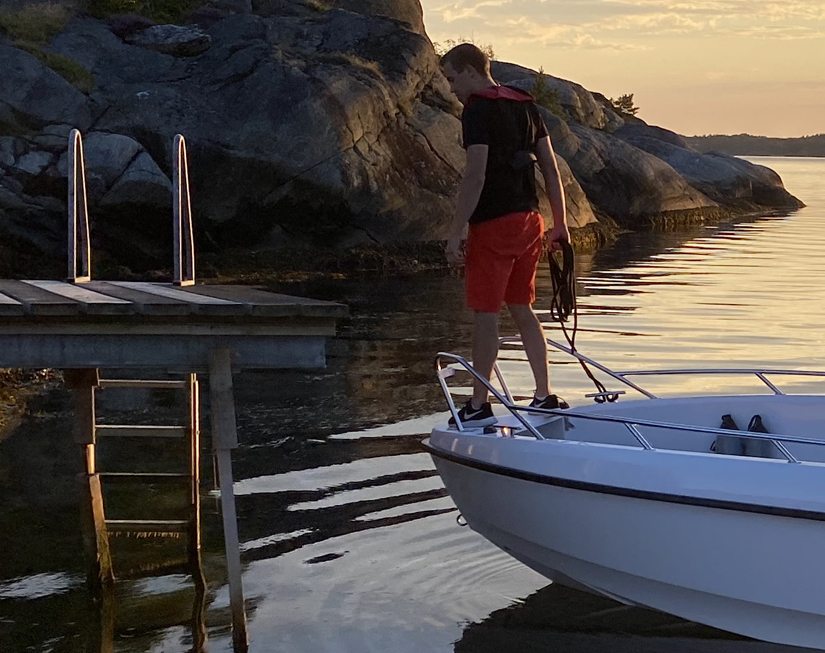Boating tips
Beaching
Boating tips
Beaching
Every beaching operation should be planned in advance and executed calmly and deliberately. Prudence and anticipation will guarantee that your boat stays clean and dent-free. The structure of a fibreglass boat permits beaching if it is done with care, but you should steer clear of the rockiest beaches to be safe.
Clear division of responsibilities
You should choose your beaching spot in advance and establish a clear division of responsibilities on board. The crew often functions best when the skipper pilots the boat while the rest of the crew assist in beaching according to rules and guidelines agreed upon in advance. A controlled and well-planned beaching does not require idle chatter, and can even be managed without a word if everyone on board knows what to do.
Easy does it
You should adapt your beaching speed to the prevailing conditions to enable safe and controlled stopping. When nearing the beach, you should lower your speed in good time before approaching the shoreline. You can also trim the outboard engine up to ensure that it will not touch bottom. This will also minimise the effects of your own wake and enable you to beach the boat in style, without undue bobbing and moving about.
Size does matter
You should think carefully before trying to beach boats with an unloaded weight of more than one thousand kilogrammes in shallow waters, as heavy boats can easily become stuck in sand, making them hard to launch again. In any case, large boats must always be beached very carefully and in a planned fashion. Check the location, the equipment required for beaching and the division of duties before beginning the actual approach. The wake created by a large boat also requires careful consideration, since it can have a significant effect on other boats moored or beached at the same beach.
Safety from hand signs
Finger and hand signs are handy for indicating distances during beaching if the skipper does not have a direct line of sight to the water at the bow or stern. Being able to anticipate the potential effects of wind and seas on the boat is also important. A competent skipper is also able to take upcoming changes in the weather into account when choosing a beaching spot.
